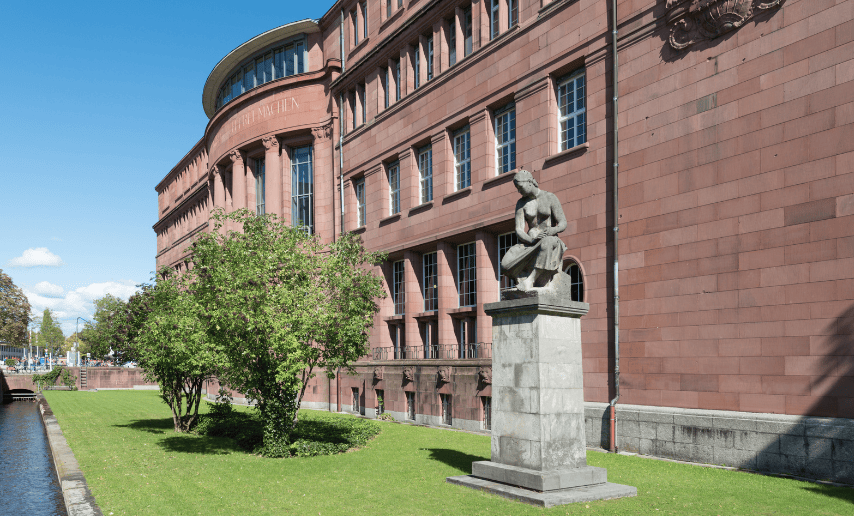
The University of Freiburg is one of the top universities in Germany and has been recognized for excellence in research and education for the last 565 years. Markus Weiler is a Professor of Hydrology & Chair of Hydrology in the Faculty of Environment and Natural Resources and explains why the faculty has such a good reputation when it comes to research.
“We are somewhat unique in that we typically have one professor that oversees a small department with 5 to 20 Ph.D. students and other scientists, so we have the capacity to run many different research projects. Germany also has very good external funding available for university research. The hydrology department currently has five different experimental catchments, one in the Black Forest, another in a rural setting, also an urban setting, and two in agricultural watersheds. At any given time, we have 10-15 different projects underway.” said Weiler.
These research projects amount to large volumes of data that need to be stored and managed by multiple people for long periods of time. Having this data accessible in one central place is important so that researchers can organize and analyze the data.

Customizing Software to Address the Scope
In 2012 the Chair of Hydrology got a large grant from the German research foundation, Deutsche Forschungsgemeinschaft (DFG) to install 10,000 individual sensors in different watersheds in Luxembourg to measure discharge, soil moisture, meteorological variables, water quality, groundwater and isotopes. Aquarius was used to manage the large amount of data from this continual monitoring and required some custom modifications to manage the large scope of the project.
Another unique aspect of the chair of hydrology is that is part of the Faculty of Environment and Natural Resources, this gives Weiler access to a range of expertise. Projects include input and use of data from economists, political scientists, engineers and so on. This approach allows research projects to incorporate many different skill sets and perspectives that make the outcomes more meaningful to society.

Predicting Impacts of Climate Change
Today the chair of hydrology is working on a large project linking carbon and water fluxes in forests between trees, soil, and the atmosphere. There are thousands of measurements being taken within one hectare of different forest stands and Weiler is using Aquarius to manage, qualify and analyze much of this data. This is a complex project with 4-dimensional measurement, that includes sensor and sample data that is currently collected by students but will soon be robots designed by the engineering department, as well as drones to measure conditions in the canopy, magnetic resonance imaging (MRI) and nuclear magnetic resonance (NMR) that allows for analysis of water and phloem sap flows throughout the tree system.
The continuous NMR is a new methodology that can quantify the transport of water and carbon (isotopes) in trees and is something Weiler hopes to work with Aquarius developers to incorporate into the software. By improving the understanding of carbon and water cycles in forests, scientists will be able to better predict the effects of extreme heat, drought and flooding that are increasingly endangering many forests around the world.
As forests process much of the planet’s carbon, their survival is our survival, so it’s imperative that we understand how it functions on different scales so that we can better predict the health of forests in 10, 20, 50 or 100 years plus, as we face the effects of climate change.

Benefit of Off-The-Shelf Solutions
Prior to using Aquarius, research data would reside in disparate places and over time the data sets would often lose their value because the information that defined the data or time series would be missing as the person moved on. The university found that years and years of valuable information was lost when data was stored in various project file formats and in different locations.
“We have seen over time that to get the most value out of data, takes skilled structuring, and in our case from hydrological experts. Software continues to evolve over time as do our methodologies, research needs and project parameters. Designing a new data management system from the ground up to accommodate these changes, doesn’t make sense. This is why we prefer to use a professional program that is maintained by developers who focus solely on streamlining data management for better analysis,” said Weiler
Today Aquarius is used by monitoring agencies around the world to acquire, process, model and publish data, and it continues to expand features and offerings based on valuable insight and needs from clients like Markus Weiler.

